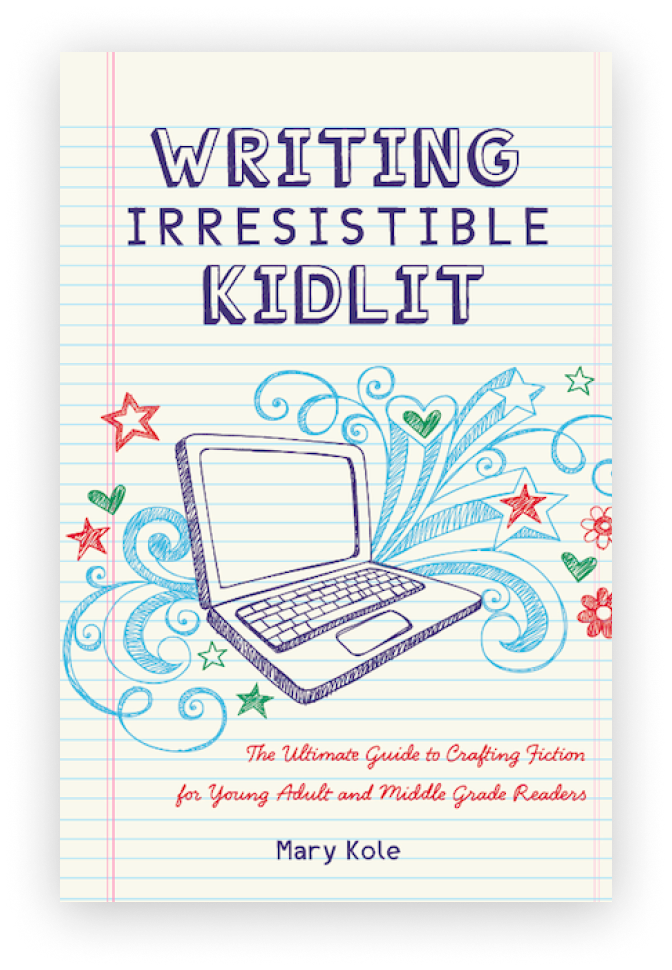The Key to Authentic Writing
By Mary Kole
Mary Kole is a former literary agent, freelance editor, writing teacher, author of Writing Irresistible Kidlit, and IP developer for major publishers, with over a decade in the publishing industry.
Crafting compelling manuscripts and committing to authentic writing is a lifelong journey. And one ingredient to brave and successful writing is vulnerability. Let’s explore what authentic writing means in the market and how you can pursue this in your work, whether you’re writing fiction, memoir, nonfiction, or creative nonfiction. Read on to engage with this very important topic.
Find Your Authentic Writing Voice
If you’re struggling to find your unique, evolving, authentic writing voice that resonates with readers, you’ll notice that this is becoming more and more desirable in the market. The problem is, authentic voice takes time to develop. The perspective that you want to express with your authentic voice takes time to develop, too. You can’t rush this. It requires life experience and contemplation and writing craft to pull off.
Unfortunately, impatience is one of the biggest obstacles most writers face, and patience is something to add to your writers tools right now, if you haven’t already. Some writers want to publish their book as soon as possible, but that's not how the traditional publishing process works. And in their haste to try and generate a “publishable” manuscript, some writers have been churning out uninspired, flat writing that lacks depth. This is not authentic writing that has something to say, but writers can’t fathom why they’re not getting a book contract.
Trained writers who have gone through critique groups and writing workshops are often so eager to give compliments that they will instantly pat their fellow writers on the knee and whisper that my work is actually very good. There’s no feedback given, no difficult conversations are had, and the writer doesn’t grow. My favorite types of writers are those who engage with challenging writing notes and commit to developing their craft.
Growth and Authentic Writing
That growth is the number one “x-factor” that can lead you to the type of authentic writing that most writers aspire to. Many people have the habit of playing it safe and not pushing themselves. While it’s true that you should learn writing rules before freewriting and breaking them, don’t mistake a sloppy style without boundaries for authentic voice. No matter your chosen genre or category, simple, clean writing that communicates your point and opens up your emotional landscape is desirable.
Lack of growth is almost like a defense tactic—if a writer doesn’t express themselves to the fullest, or if they don’t lean in to who they really are … they won’t be as disappointed if the effort fails. This is basic self-defense. Criticism will barely faze them since they know, deep down, that the effort wasn't their best anyway. But let's face it: if you want to do something well and get your book published and use your authentic voice to its full potential, you have to put in the work. Writing is not an easy feat.
Don’t let defensiveness and self-sabotage stand between you and your writing ambitions. Chase your authentic writing voice, and say something big with your work. Don’t play it safe. Be brave. Don’t settle for just “good enough” in the hopes that this will get you past the publishing gatekeepers. Take a risk and write what you've been scared to write all along!
I'm done with those safe and uninspired manuscripts that get me nowhere. Like any writer, I've experienced my fair share of writing rejection. But I'm grateful for them—thank you to all the editors who haven't published various projects of mine over the years. Who’s with me in pursuing authentic writing and breaking out of the comfort zone? There’s great strength, after all, in vulnerability.

Click here to purchase Writing Irresistible Kidlit, my book on fiction craft for MG and YA novels, out from Writer's Digest Books. This will show you my writing craft philosophy and give you lots of valuable advice, including tips for the novel revision process and self-editing. There are over 35 example novels cited and discussed throughout. It’s a valuable resource for any writer’s toolkit.
Click here to purchase Irresistible Query Letters, my book on query letters, including over forty examples with comprehensive notes on each one. There’s a ton of submission advice, best practices, and insider information in these pages, and you’ll really enjoy seeing what other writers are doing in the slush.
Click here to purchase Writing Interiority: Crafting Irresistible Characters, my book on interiority and character creation. Explore your protagonist’s thoughts, feelings, reactions and interpretations, expectations, and inner struggles to create a rich, immersive experience. This guide will empower you to create characters who live and breathe on the page, fostering an unbreakable bond with your audience.





